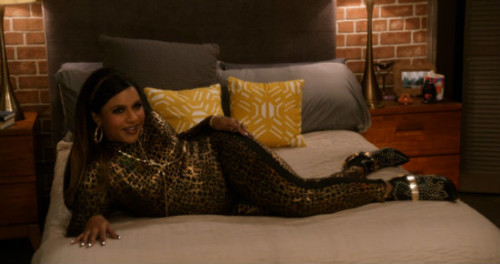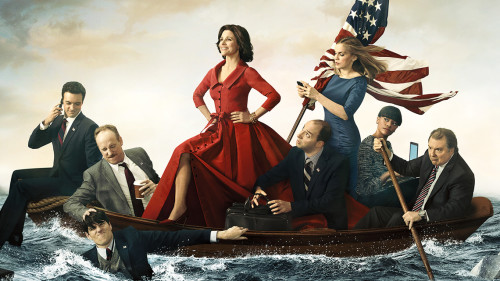This guest post written by Shannon Miller appears as part of our theme week on Women Directors.
Growing up, I used to stare at my mother’s seemingly impressive VHS collection, which she maintains to this day. What fascinated me most was its eclectic range. Friday, for instance, was often nestled between Steel Magnolias and Selena. What’s Love Got to Do with It sat to the right of our small Disney collection and just before Speed. Sister Act, if not still warm in the VCR, had its place next the original Parent Trap. Scattered throughout the assortment was a weirdly appropriate representation of the romantic film landscape at the time: Pretty Woman, While You Were Sleeping, She’s the One, Hope Floats, Ghost, One Fine Day, My Best Friend’s Wedding. These are stories of women exploring their version of love in ways ranging from entirely relatable to, quite literally, paranormal.
I recognized my mother’s attempt to support films that featured actors and actresses that looked like us, even going as far as to purchase movies that she hadn’t seen yet, which now seems like a major (and costly) leap of faith. I also knew, and eventually mirrored, her genuine love of romance and beautiful endings, happy or not. Looking at our collection, I came away with a deep seated understanding that, as Black people, we could be funny, dramatic, troubled, and many versions of “strong.” Romance, however, was a white woman’s game. There was a noticeable shift in Black cinematic storytelling in the late 1990’s, but it wasn’t until 2000’s Love & Basketball that I began to find an honest connection with something that felt familiar. The story of Monica Wright (Sanaa Lathan) and Quincy McCall (Omar Epps) opened up a whole new world of possibilities for me in romantic storytelling. I was too young to know that I had writer and director Gina Prince-Bythewood to thank for that.
Love & Basketball tells a number of tales. It tells the story of a young woman asserting her identity against narrow definitions of femininity. At times it follows a young man having to learn the hard way that sometimes your heroes can stumble to the point to failing you. You can even come away from the film with a hearty discussion about the long, winding trajectory of success for women in sports versus the plentiful, immediate options available for men. The beauty of this particular film, however, is how each of these stories are bound together by the singular, accessible idea of two best friends falling in love and trying to simultaneously navigate their friendship as well as their individual destinies. Like many solid coming-of-age stories, we get to witness the complexities of aging out of adolescent friendship.
Once they enter college, Monica and Quincy begin to learn what genuine support entails and what it means to require something more from each other than a shared loved and mutual kindness. That’s what the evolution of relationships is all about: adjusting to the changing parameters of certain bonds as you grow and learn. For many, the pang of disappointment that Quincy feels as he chastises Monica for not being available to him at his lowest moment feels familiar. In contrast, it’s easy to connect with Monica’s need for Quincy to celebrate her long-fought, hard-earned victories. This leads to a disconnect that so many young couples have experienced at one point or another.
These experiences aren’t exclusive ones; they exist as the universal marks of youth for so many. Prince-Bythewood’s choice to center these themes around a young Black couple shouldn’t feel as revolutionary as it does. But when you consider that “universal” is too often conflated with “white,” Love & Basketball feels like such a turning point in the romance genre. It was certainly a turning point for me because, for a moment, Black love and romance, as told by Hollywood, weren’t mutually exclusive. Not long after that, however, there seemed to be another dearth in quality romance narratives featuring Black people as the Nicholas Sparks aesthetic – blonde-haired, fair-skinned women paired with young, Zac Efron-esque hunks — reigned. Once again, mainstream romance was excluding people of color.
Then 2014 and Gina Prince-Bythewood brought us Beyond the Lights. With that, I felt like I once again had a place in the genre that I cared about so deeply.
On the surface, Noni (Gugu Mbatha-Raw) and Kaz’s (Nate Parker) story – a tortured pop starlet falling for her tender, down-to-earth guard – may not appear as relatable as that of Monica and Quincy. There is, however, a common struggle that bonds these two: the torment of not having the freedom to live as our most authentic selves. As a highly publicized pop star Noni’s every move, word, and look is manufactured by her mother/manager Macy Jean (Minnie Driver) and management team. As an aspiring local politician, Kaz’s relationship with Noni is scrutinized heavily by his father (Danny Glover). As they grow closer, they’re both given an opportunity to relax their personas and escape the criticisms that make their lives uniquely difficult. Their story, above all else, is about their desire to be truly seen as fully realized beings and not just the Troubled Pop Star and the Heroic Guard Turned Politician.
While l praise Love & Basketball for depicting Black love in a way that was relevant to all audiences, what I happened to love most about the romance between Noni and Kaz were the aspects that were specifically poignant to me as a Black woman. On an impromptu trip to Mexico, Noni finds herself standing in front of the mirror in their shared bungalow, contemplating her distinctive purple extensions. In a moment of genuine vulnerability, she decides to shed her famous tresses and reveal her natural hair to her partner. Standing before him in her gorgeous curls, I recognized the glint of apprehension in her eyes as she awaits his reaction to seeing her truly authentic self for the first time.
The significance of Noni showing Kaz her natural hair – hair that is so often scrutinized by the public from youth to adulthood – and him responding with a kiss and reverently running his fingers through her curls is something so simple, yet so extraordinary and rare in romantic cinema. Just like crossover relatability is important, so are the moments that are specifically experienced by marginalized audiences. We need the assurance that our stories are worth telling.
During a Twitter chat that included Gina Prince-Bythewood last May, seven months after the release of Beyond the Lights, I took the opportunity to ask her what she wished to see more of in terms of on-screen romance. “More real love,” she replied. “Not surface, cliché, joke, but the kind that really wrecks you.” Here’s hoping that this phenomenal woman is allowed more opportunities to not only wreck us emotionally, but to obliterate the notion that different shades of romance don’t exist.
Also at Bitch Flicks: ‘Love & Basketball’: Girls Can Do Anything Boys Can Do, The Female Gaze: Dido and Noni, Two of a Kind, ‘Beyond the Lights’ Premiere: Interviews with Gugu Mbatha-Raw and Gina Prince-Bythewood, Gugu Mbatha-Raw Is a Superstar in ‘Beyond the Lights
Image of Gina Prince-Bythewood via Wikipedia and the Creative Commons License.
Shannon Miller’s passions include bossy women, social justice and her three-year-old daughter’s version of “Let It Go”. She co-hosts the Nerds of Prey Podcast, a nerd culture show hosted by four passionate Black women. You can read her thoughts regarding representation in media on her blog Televised Lady Bits or follow her on Twitter @Phunky_Brewster.









